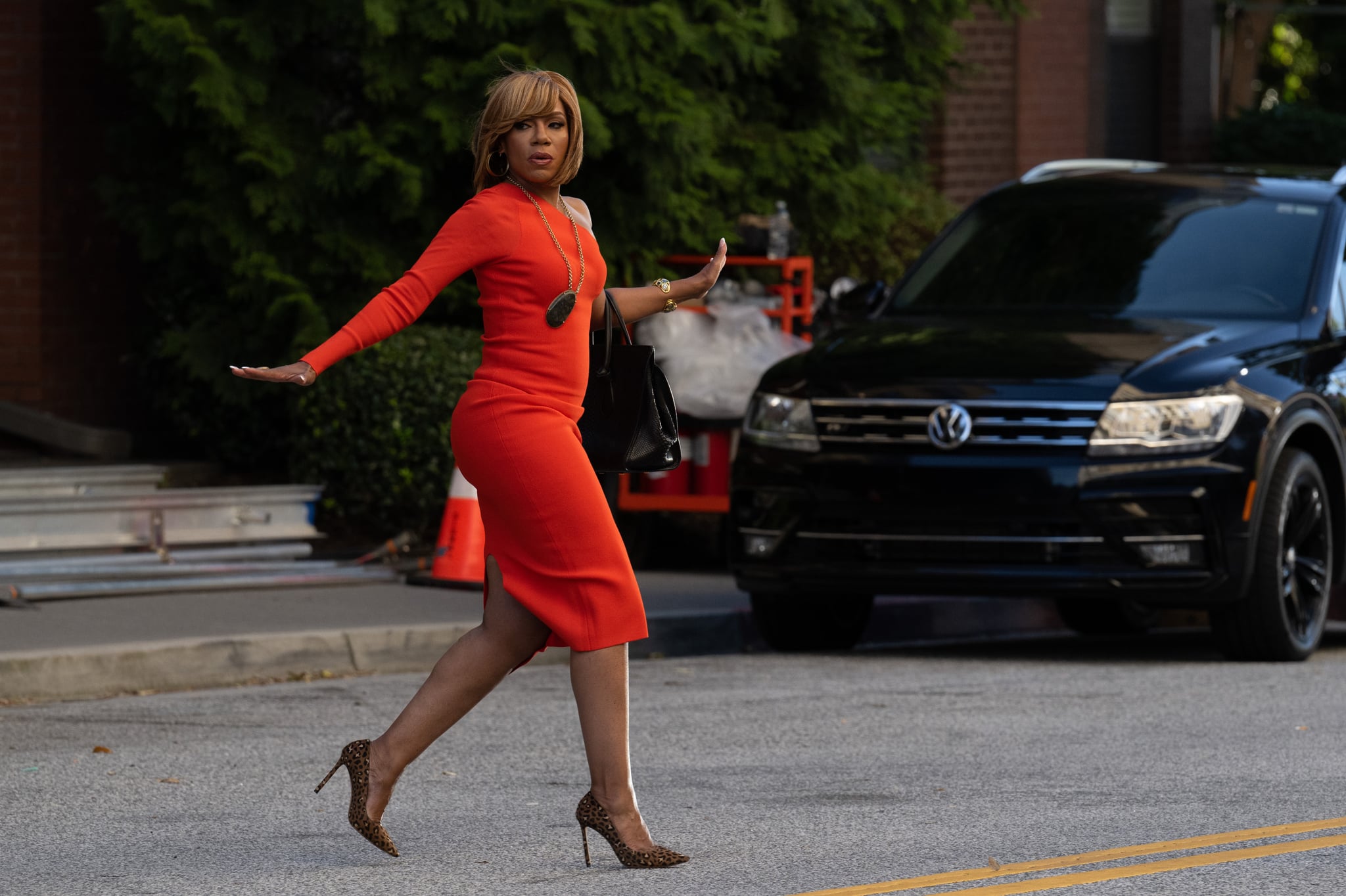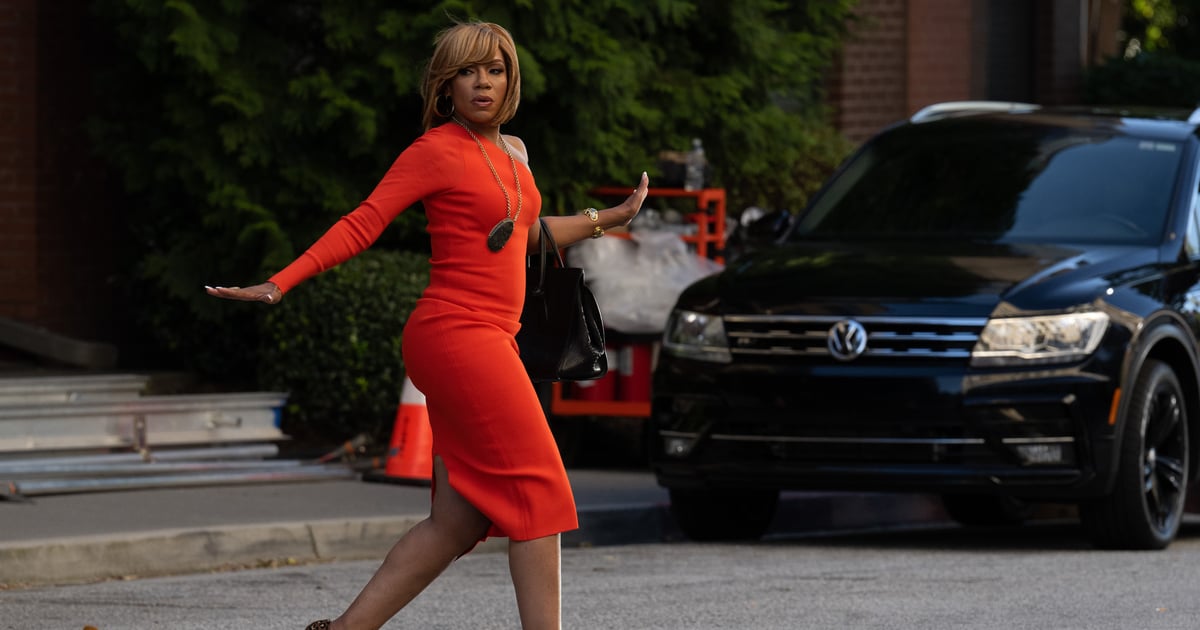Products You May Like

Image Source: Boris Martin/Paramount+
When Wendy Raquel Robinson learned that a new storyline would depict Tasha — the character she plays in Paramount+’s “The Game” — dealing with uterine fibroids, she felt a chill throughout her whole body. “I had to stop and ask myself, is this art imitating life? Or is this life imitating art? Because there was a point almost 15 years ago — actually still in the role of Tasha Mack — when I was suffering severely with fibroids,” Robinson tells POPSUGAR. “It got to a point where my hemoglobin had dropped down to a two, and I had to get blood transfusions. It had gotten really out of control.”
Uterine fibroids are noncancerous growths that occur in the uterus that can cause heavy, prolonged menstrual bleeding or unpredictable cycles; moderate to severe menstrual cramps; anemia; and pain during sex.
While anyone with a uterus can develop fibroids, they’re up to three times more common among Black people than white people, and the Journal of Women’s Health reports that Black people tend to develop them younger and experience more severe symptoms. Between the ages of 18 and 30, nearly 25 percent of Black people have fibroids, compared to six percent of their white peers, according to the journal Clinical Obstetrics and Gynecology; by age 50, about 80 percent of Black people and 70 percent of white people with uteruses will experience the growths, the American Journal of Obstetrics & Gynecology found.
Robinson first realized she had fibroids when she began experiencing heavy bleeding. “My monthly cycle went from five days to eight days to, ‘Oh my God, is it ever gonna stop?'” she says. But she struggled to find a doctor who could help her manage her symptoms. One prescribed a birth control that “sent my body into shock,” causing her to start clotting, lowering her hemoglobin levels, and making her anemic. Others immediately suggested surgery, which Robinson was hoping to avoid if possible.
Finally, she saw a doctor who helped her shrink her fibroids through other methods, including a different type of hormonal birth control — but the entire process took seven or eight years, she says. Robinson’s whole life had been impacted by the condition. “It affects your sex life, your everyday life,” she says. At work, she remembers worrying about bleeding through her character’s wardrobe.
Robinson says that after being diagnosed, she went “down a rabbit hole” and became her own expert on the condition. That’s when she realized how widespread it was among Black people, although no one was talking about it. “Once I opened up about it to my girlfriends, a few of them started opening up and sharing, saying, ‘Oh I had a myomectomy,’ or ‘I had a hysterectomy‘” (both surgical methods of treating fibroids), Robinson says. “But prior to that, we didn’t have those conversations. It took me opening up to break the ice.”
When “The Game” showrunner Devon Greggory approached Robinson about introducing fibroids into the storyline in season two, she told him, “Listen, if we’re going to do this, we have to really delve into it, because not only can we save lives by sharing this story, but we can also bring awareness to something that a lot of Black women really don’t talk about but are all suffering with,” she says.
Robinson believes stress played at least some role in the development or severity of her fibroids — or at least in why she waited so long to get help. So she hopes people who see the storyline take from it the importance of making the time to care for your body. “It’s not normal, and if it’s not treated, it can kill you. You can go into cardiac arrest from that kind of blood loss,” she says.
Watch Greggory and Robinson talk more about how they handled the important topic in “The Game” here.
